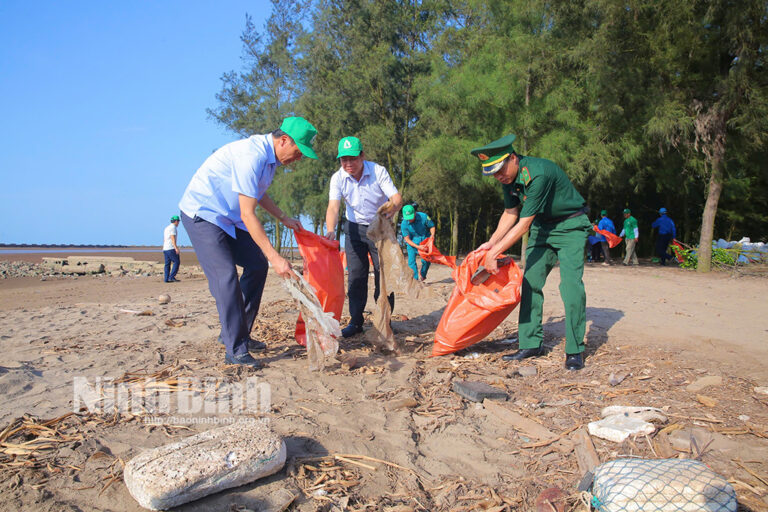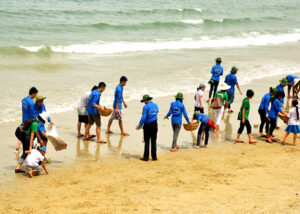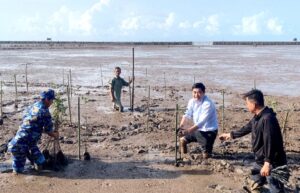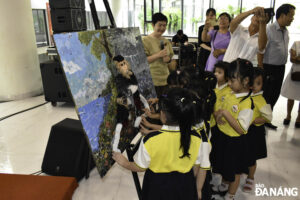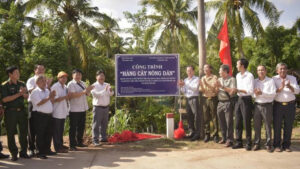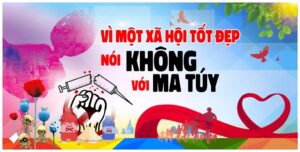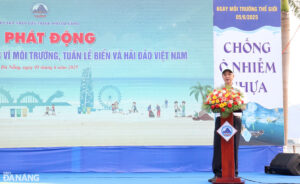Vietnam is a multi-ethnic and multilingual country, so in addition to Vietnamese, which is used as a common language, there are 53 ethnic minority groups with their own languages.
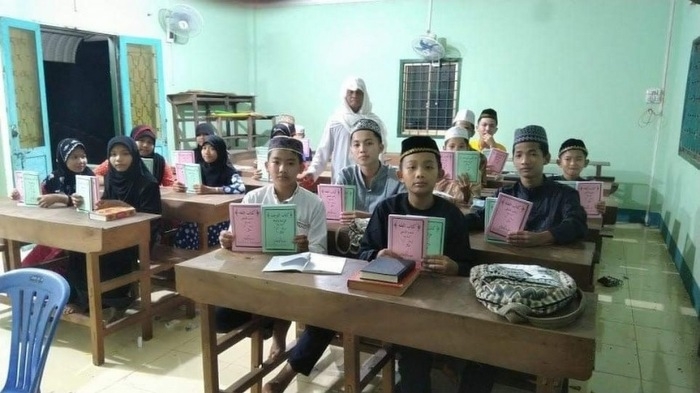
An hour of learning ethnic languages in Tra Vinh province. (Photo: NDO)
However, there are languages preserved carefully while several others have been lost or in danger of disappearing.
The studies conducted by scientists from Vietnam Academy of Social Sciences and the Faculty of Linguistics under the University of Social Sciences and Humanities under the Vietnam National University, Hanoi, proved that some ethnic minority languages are facing a high risk of “disappearing”, such as Arem, Ma Lieng, Ruc, Co Lao, Pa Di, Thu Lao, Cuoi and Pu Peo.
They are mostly ethnic groups with few people (from a few hundred to about 1,000) and very difficult social lives. They no longer have the capacity to preserve and maintain their own languages and voices.
Research shows that there are many reasons leading to the risk of losing the languages of ethnic minority groups. Firstly, due to small population, the number of people who know and regularly use their ethnic languages is quite low. Secondly, they do not have writing or not use their writing regularly. Living too isolated or in areas where other ethnic minorities have larger populations and more developed socio-economic conditions can also easily entail the risk of losing their languages. In addition, the local people have not paid much attention to passing down the languages to younger generations. The support from specialised agencies and local authorities has not been very effective.
According to Dr. Nguyen Van Hiep, Director of the Institute of Linguistics under the Vietnam Academy of Social Sciences, the preservation of ethnic minority languages has long been of special concern to the Party and State. The 2013 Constitution clearly states: “Ethnicities have the right to use their own language and writing, preserve their national identity, and promote their fine customs, practices, traditions and culture”.
In addition to the Constitution, there are many resolutions, laws, regulations and guidelines, as well as many agencies and research and training institutions, aimed at studying, preserving and promoting the languages of ethnic minority groups around the country. Vietnamese Party and State always consider ethnic languages as one of the elements that make up the national cultural identity, thus the conservation of ethnic groups will contribute to preserving and promoting the cultural identities of ethnic minority groups in the country.
The right policies and decisions have brought good opportunities to the development of ethnic minority groups’ languages. In some ethnic minorities with large populations, their ethnic languages are used as second languages in schools.
In addition, the languages of several ethnic minorities such as Khmer, E De, Gia Rai, Ba Na, Cham, H’Mong, Tha, Xe Dang, Tay, Ha Nhi, Hre and Ca Tu, have been also promoted via central and local radio and television. Some have been used for printing literary and cultural works, bilingual dictionaries, grammar description books, and textbooks.
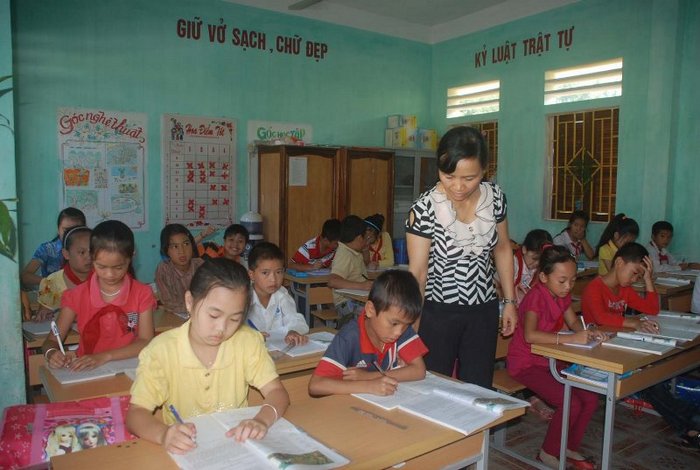
Ethnic minority languages should be taught for students. (Photo: NDO)
For some ethnic minority languages, the State’s policies have had great significances. Many localities such as Nghe An, Dak Lak, Gia Lai, Lai Chau, Dien Bien, Ha Giang, Lao Cai, Son La, Soc Trang and Khanh Hoa have organised many practical and meaningful activities to restore ethnic minority languages in the endogenous activities of each ethnic group.
For example, the Lao Cai Provincial Ethnic Minority Committee has opened 60 language classes for Phu La and Bo Y ethnic groups. The province’s radio and television stations have launched two specialised websites on H'Mong and Dao languages for those wishing to exchange and study through these languages. The provincial Department of Culture, Sports and Tourism has also conducted many studies on ethnic minority languages through the pages of ancient books kept at the province’s museum.
The activities to preserve the values of the ethnic languages have received a strong response from the ethnic minority groups. Many old people and artisans have opened language and literacy classes for young people themselves to help children not forget their mother tongue.
The Ministry of Education and Training has developed a bilingual program in eight ethnic languages including Thai, H’Mong, Ba Na, Gia Rai, Xo Dang, Cham, Khmer, Hoa and E De for boarding elementary and high schools for ethnic minorities. Based on this set of documents, there are currently about 30 provinces and cities around the country organising ethnic minority language classes in schools.
Many localities have carried out the teaching of ethnic languages for students in high schools, gaining positive results, such as Son La with the plan of opening around nine classes with 400 students each year and Binh Thuan implementing four periods of Cham language per week. Lao Cai Province also conducts courses of bilingual languages (Vietnamese and ethnic minority languages) in some schools.
The teaching of ethnic minority languages within the community is the most important factor in the "revival" of endangered ethnic minority languages. The preservation and promotion of ethnic minority language values is also the preservation and promotion of the cultural identity of ethnic minority groups around the country.
Nghiem Thi HueTranslated by NDO



